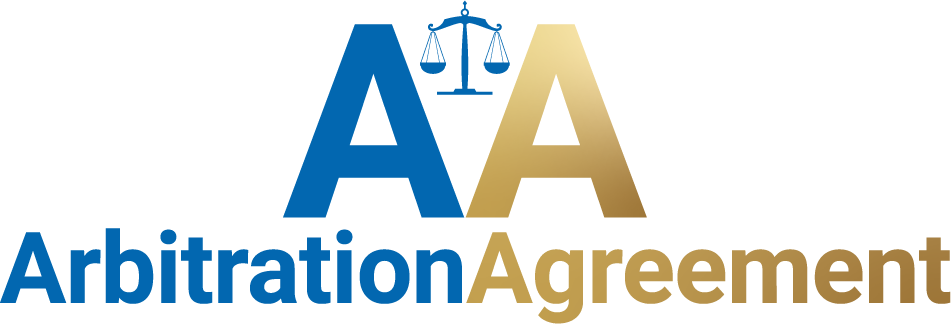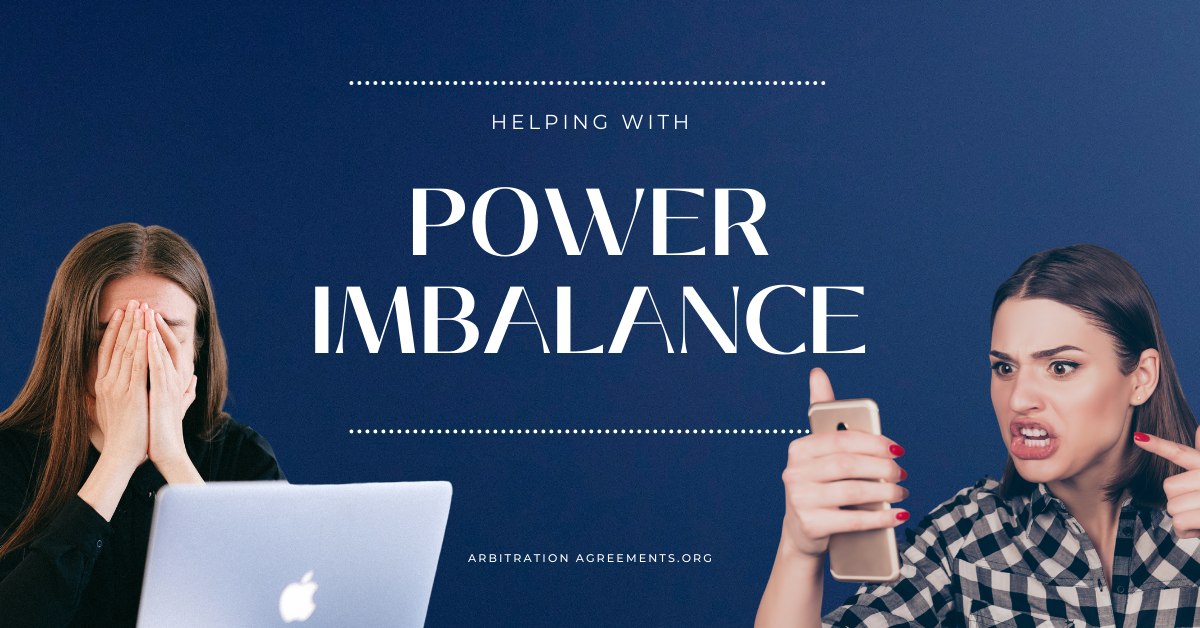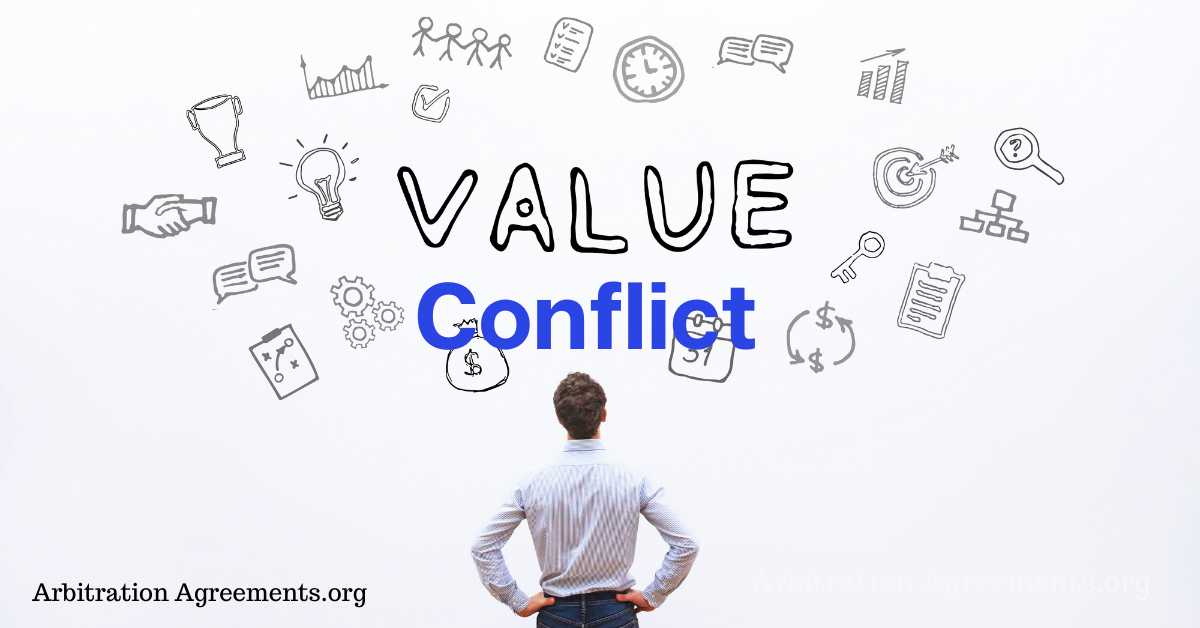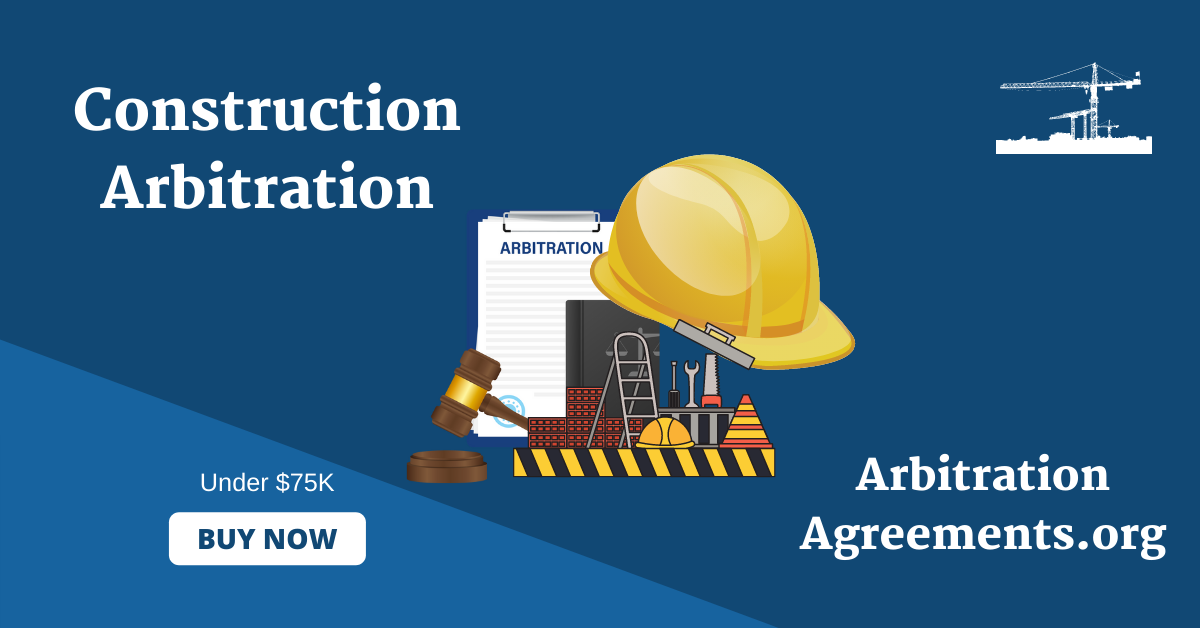All About the Standard Binding Arbitration Agreement
Each binding arbitration agreement refers to a specific type of arbitration. That type of arbitration gets referred to as “ binding arbitration .” When arbitration is binding, disputing parties must follow an arbitrator’s decision.
Even US courts must adhere to an arbitral decision with binding status.
Now, say that arbitration is non-binding. That means any party has the freedom to reject the arbitrator’s decision. This way, a party can take any non-binding dispute to a US court. Then, the parties can litigate as if arbitration never took place.
Binding arbitration is much more common than non-binding arbitration.
Almost every arbitration agreement has full binding status. Let’s continue going over the basics of non-binding agreements.
What Is an Arbitration Agreement?
An arbitration agreement requires the person signing it to resolve disputes through arbitration. But non-binding arbitration cannot take place. By signing the agreement, the binding arbitration process has to happen.
Signing this agreement gives up the right to resolve a dispute in court.
This means that the signee cannot access a judge and/or jury. Many people and businesses prefer binding arbitration agreements. Why? Because they often reduce the costs of litigation. Plus, arbitration will keep every dispute confidential. Otherwise, US court cases are private and can expose information. Say that you choose to sign an arbitration agreement with binding status. This means that you have given up certain rights that connect to litigation. This is why you should not sign an agreement without reading it. Each agreement will contain arbitration clauses and arbitration process . It’s best to go clause by clause and read the entire document. This way, you can reject and renegotiate certain legal concepts.
When Do People & Consumers Encounter Binding Arbitration Agreements?
These days, you can find binding arbitration agreements all over the place. They get featured in many pre-printed consumer contracts. More than credit card companies and banks use arbitration agreements. Many brokers, financial service providers, and home builders also draft them. Not to mention, so do insurance companies and communications providers. Even car dealers and cell phone companies create agreements for arbitration.
These agreements feature unique arbitration clauses with binding status.
You can find the clauses within pre-printed contract forms. Each binding agreement always demands mandatory arbitration. So, what does this mean for a consumer? Say that a consumer signs a contract. But months later, a legal dispute takes place. That consumer has to go through mediation and arbitration to resolve the dispute. The consumer isn’t allowed to pursue legal action inside a US court. Arbitration is no longer an option. Instead, it’s a legal requirement. That’s the case whether the consumer read the agreement for arbitration or didn't read it.
What Is the Cost When a Consumer Goes to Arbitration?
The cost of arbitration with binding status can vary based on many factors. The first cost to take into account is the filing fees. Then you've got to consider an arbitrator’s charge. Parties often split the cost of an arbitrator’s fees in a 50/50 manner.
Arbitration filing fees often aren’t as high as US court fees.
But the cost of arbitration fees will vary. The total cost applies to the unique amount of each claim. Many arbitration providers apply a reduced filing fee. That is the case with the majority of consumer cases. Arbitrators often charge a per-hour fee. Or, they’ll change the standard fee for each day.
The cost of a fee might depend on the disputed legal issues of a case.
Or, the experience of arbitrator factors into an arbitration fee. Keep in mind that parties in court cases do not pay for a jury or judge. Paying a decision-maker only applies to forced arbitration and other forms of ADR. (ADR refers to the alternative dispute resolution process.)
Arbitrators often have the right to make a losing party pay more in costs.
Sometimes the losing party even had to pay for almost all the costs of arbitration. Other times, parties will still divide the costs. It depends on what’s written inside a binding agreement to arbitrate.
What Should a Person or Consumer Expect During Arbitration With Binding Status?
Each binding arbitration hearing isn’t as formal as a US court trial. An arbitration hearing also concludes faster than the average trial. The parties provide their interpretation of the facts. They do so by using witnesses and documents. This takes place in a manner like a court trial. But there is one key difference.
The legal rules of evidence in a courtroom do not apply to arbitration.
In fact many standard court procedures often do not apply. An arbitrator must consider the evidence. Then, the arbitrator makes a decision with binding status. Most arbitration decisions get announced on an immediate basis. But sometimes it can take up to 30 days for parties to receive the binding decision.
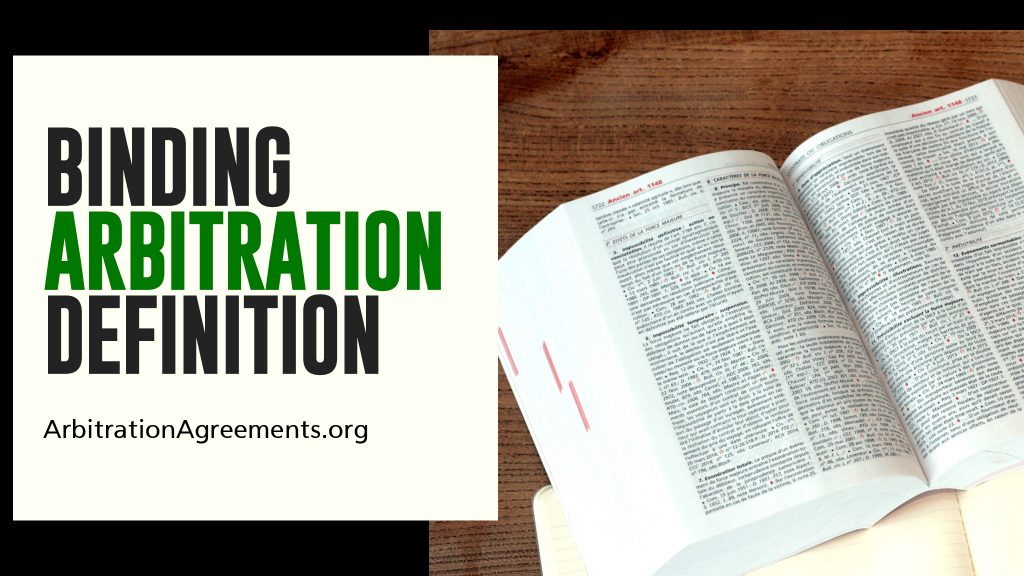
Who Will Arbitrate Disputes?
There are two major forms of arbitration. First, there is voluntary arbitration. This is when both parties agree to take part in the arbitration process . Then you've got mandatory arbitration .
When arbitration is mandatory, it has automatic legal binding status.
This means it’s required by law for parties to arbitrate. The majority of contract arbitration relates to binding and mandatory arbitration. Why? Because the parties have signed an arbitration clause or provision. That clause enforces the parties to arbitrate disputes related to the contract. (This is a prime example of how arbitration with binding status functions.) Say that a contract doesn’t contain a clause/provision about binding arbitration. Parties can still arbitrate. But they have to agree to take part in voluntary arbitration.
The Advantages of Arbitration
Arbitration is an excellent choice for resolving most simple contract disputes. With simple disputes, a matter can get resolved in one or two days. But that is not the only advantage of agreeing to arbitrate.
Arbitration functions in a faster and more efficient manner than court litigation.
This applies to arbitration with legal binding or non-binding status. Plus, arbitration can avoid hostility between parties. That’s because federal arbitration act always functions as a private proceeding. Arbitration avoids the public drama that a courtroom can create. Say that the subject matter of binding or non-binding arbitration is complicated. The parties can choose an arbitrator with great technical knowledge. Otherwise, a judge in court will not have a deep level of knowledge and experience.
Should I Sign a Binding Arbitration Agreement?
Keep in mind that you never have to sign an agreement with binding status. But sometimes there are consequences when you refuse to sign. An employer might not hire you if you don't sign an agreement for binding ADR. In fact, many employers now make new hires sign an arbitration agreement. Why? So that legal disputes never go to court. Instead, they get resolved through arbitration with binding status.
Does an Arbitration Agreement Hold Legal Binding Status?
Every arbitration agreement features unique terms within each provision and clause. You must read the agreement to determine whether the arbitration vs litigation is binding or not. But keep this in mind. Almost all arbitration agreements hold legal binding status. Otherwise, one party can reject any arbitral award or decision an arbitrator makes. But never assume anything about a legal agreement. Try to read your agreement to arbitrate word-for-word.
Can I Sue After Arbitration?
As long as an agreement to arbitrate has binding status, you cannot sue after arbitration. That’s why most companies prefer using agreements with binding status. They prevent the other party from pursuing legal action in court. The key is to read each arbitration provision clause. Once you do, you’ll discover whether the agreement holds legal binding status.
Can Binding Arbitration Get Overturned?
Arbitration with binding status almost never gets overturned. An arbitrator’s legal decision is final. That’s because most arbitration agreements make this concept a priority.
A binding arbitration decision can't even get reviewed by a US court.
There are a few exceptions here. An arbitrator must commit fraud or misuse legal or arbitral power. Any non-binding arbitration decision can get overturned with ease. All a party has to do is reject the legal award or decision. But keep in mind that most arbitration cases hold legal binding status. Read full info at Binding Arbitration Definition.
Do I Have To Sign an Arbitration Agreement From an Employer?
No, you never have to sign any legal agreement to arbitrate that an employer provides. But you might lose your job if you refuse to sign this binding document. Over the last few decades, arbitration agreements have become common.
Many employers love that employment disputes can go to private arbitration.
This can apply to claims about harassment and discrimination. (California and other states have laws in place about these types of legal claims.) Most employers want to avoid sitting down in a courtroom. That’s because a US courtroom is always open to members of the public.
An agreement to arbitrate means that a dispute isn’t subject to judicial review.
That’s why the binding decision of an arbitrator is always final. This applies even when the arbitrator misinterprets the law. Or, when an arbitrator doesn’t understand all the facts.
Oftentimes, an employer will present an arbitration agreement when someone gets hired.
Signing this legal agreement then becomes a condition of employment. That’s why you have no choice but to sign the document if you want your new job. Any employer can refuse to hire you if you reject an agreement to arbitrate. This is a legal precedent that’s upheld in every US state.
Questions About Signing an Agreement for Arbitration With Binding Status? Contact Us Now
Are you unsure about signing an agreement to arbitrate with legal binding status? Or, you might want to learn more information about arbitration meaning . Either way, our arbitration experts are standing by. They're ready to supply you with tools and resources to help you succeed. All you've got to do is call us or message us on our website. You're also welcome to send us an email with questions about arbitration. Our team will get back to you ASAP and can work with you one-on-one. We look forward to serving as your go-to resource for all aspects of arbitration.
